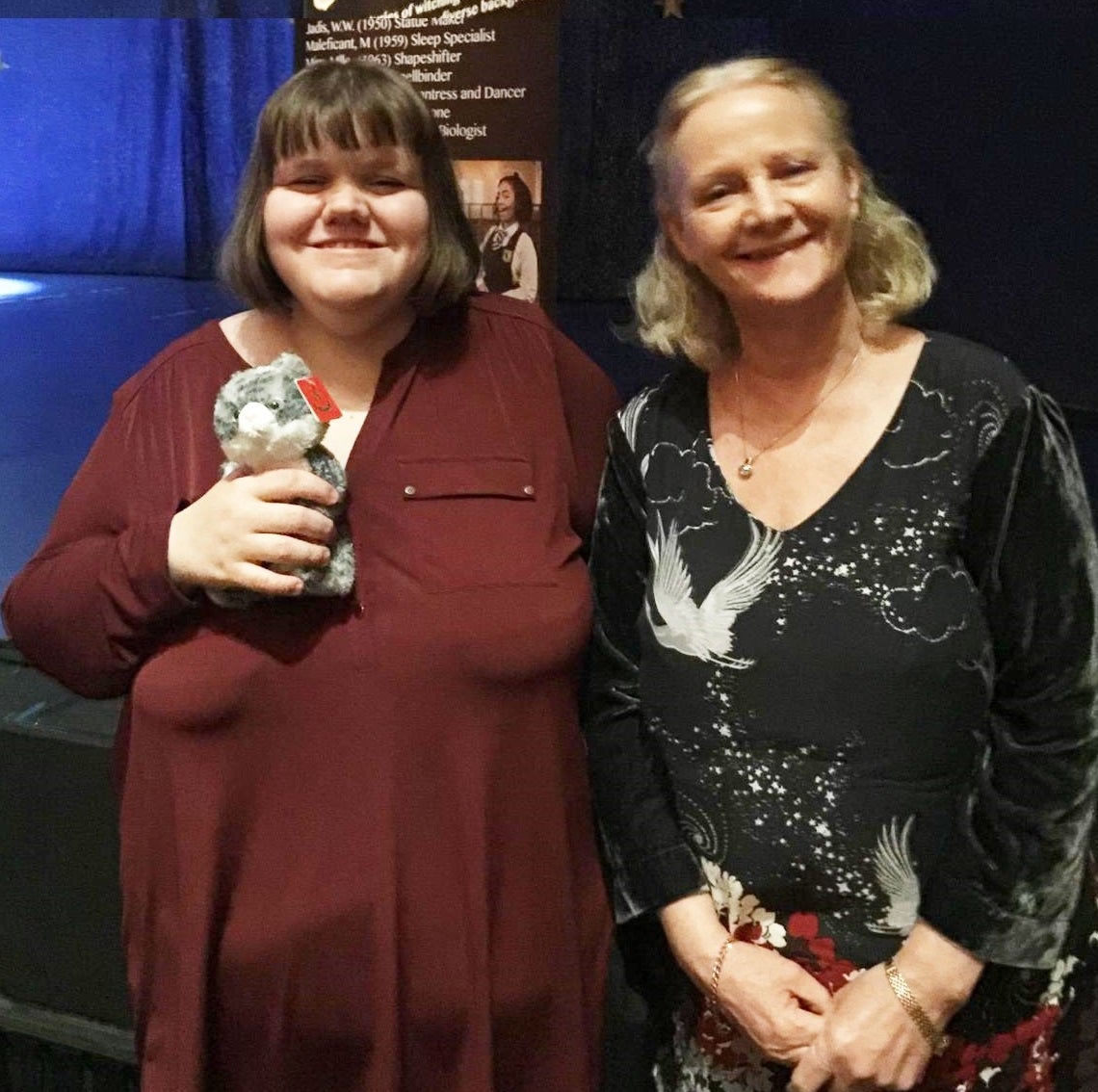‘I’m 66, healthy and have had the Covid vaccine, but my disabled daughter is still waiting – why?’
The government has so far hit its vaccine target with over 17.5 million people in the UK receiving their jabs. But, says Shirley Large, why are so many healthy people still being vaccinated before those with serious health conditions? She tells Natasha Preskey her story


Your support helps us to tell the story
From reproductive rights to climate change to Big Tech, The Independent is on the ground when the story is developing. Whether it's investigating the financials of Elon Musk's pro-Trump PAC or producing our latest documentary, 'The A Word', which shines a light on the American women fighting for reproductive rights, we know how important it is to parse out the facts from the messaging.
At such a critical moment in US history, we need reporters on the ground. Your donation allows us to keep sending journalists to speak to both sides of the story.
The Independent is trusted by Americans across the entire political spectrum. And unlike many other quality news outlets, we choose not to lock Americans out of our reporting and analysis with paywalls. We believe quality journalism should be available to everyone, paid for by those who can afford it.
Your support makes all the difference.For my daughter Louise, the pandemic has been an even more confusing and scary time than it has been for most people. Louise is 29 but, due to her learning disabilities, her understanding of coronavirus is limited, and she’s very frightened.
She knows that there’s a “nasty bug” going around that’s making people poorly, and she realises that she doesn’t want to catch it, but she doesn’t understand social-distancing. Louise has Smith-Magenis syndrome (a rare chromosomal condition that results in delayed speech and language skills, learning disability and problems with sleep), autism and a high BMI.
She lives with my husband and I, needs round-the-clock care, and cannot get a job or live independently. While Louise was not advised to shield, she is at a high risk of becoming seriously ill with Covid, and we have to be careful to remind her to sanitise her hands and stay two metres away from other people.
According to government figures, people with learning disabilities are up to six times more likely to die from Covid, and another recent study found that obesity increases risk of dying by 37 per cent. And yet, Louise hasn’t yet been offered the vaccine, while I, my husband and all Louise’s carers have all had the jab.
I read Jo Whiley’s powerful words about being offered the vaccine before her sister, who has learning difficulties and underlying health conditions, and I agree it just doesn’t make any sense.
At 66, I fall into vaccine priority group five (the over-65s) and, on the morning that I went to have mine, I felt so guilty. The whole purpose of the jab is to protect the vulnerable and there I was, a fit and healthy woman in my sixties, marching off to get it while the vulnerable person in my life sits and waits.
Jo Whiley is 55 and suggested that she may have been classed as a carer for her sister and have been offered the vaccine for that reason. All Louise’s carers, who are fit and healthy, have been vaccinated because they look after a vulnerable person – but that person still hasn’t had her jab. I know many other people are still waiting but we’re sitting in what feels like a scary cocoon, looking out into the world, thinking, “Everybody’s being vaccinated except for our vulnerable daughter”.
People with profound learning disabilities are listed in priority group six (which includes people with underlying health conditions). People from this group have started to receive invites to have the vaccine but the government’s Joint Committee on Vaccination and Immunisation (JCVI) has advised GPs to use their “clinical discretion” to identify who belongs in this category. Our GP surgery confirmed that Louise would be part of this group but, so far, we haven’t received any word on when Louise might be vaccinated.
My daughter suffers from severe social anxiety, and concerns about catching Covid and whether or not she’ll have the vaccine make this even worse. She has a wonderful sense of humour and, before the pandemic, enjoyed taking part in group activities and visiting other people with me. She’s very chatty, and enjoys having company and being around animals. Zoom has been great for helping many people stay connected but Louise has a communication disorder and isn’t able to video call or speak on the phone.
“The only time she leaves the house at the moment is to come to the supermarket with me or a support worker”
Her world has shrunk even more than most. As she can’t work or volunteer, so attending group activities and talking to people with me are usually Louise’s main outlets. Many of the social service’s events Louise enjoyed when we weren’t in lockdown have gone online but, sadly, Louise can’t take part this way. Her behaviour has become more and more challenging the more isolated and anxious she has become.
The only time she leaves the house at the moment is to come to the supermarket with me or a support worker. When we first went out shopping together after Covid restrictions began, we were challenged by staff for being in the store together – they didn’t realise that Louise requires a carer and can’t be left alone. Even though this was just a misunderstanding, it scared Louise and she was nervous about going back there for a long time, thinking she wasn’t allowed to go into shops anymore.

If Louise did become seriously ill with Covid, her anxiety would make being in hospital incredibly frightening for her. She’d struggle to manage in hospital and, due to her behavioural problems, the staff would likely struggle to manage with her too. In a misjudged attempt at reassurance, one nurse said to me, “Don’t forget, if Louise was very poorly, she would cooperate”. Where’s the compassion in that logic? Shouldn’t we prevent it from getting that far?
My daughter wants to have the vaccine, and often asks me when it’s happening. Right now, I don’t have an answer for her. To me, making sure she stays well and doesn’t end up in hospital is as much about logic as it is about compassion. Even during the pandemic, the majority of us can’t imagine living with the levels of fear and worry Louise experiences each day. The vaccination plan was created to protect people like her and, so far, it has fallen short.
For support and advice on learning disability, call Mencap’s Learning Disability Helpline support and advice line for England and Northern Ireland.
Phone: 0808 808 1111 (9am to 3pm, Monday to Friday)
Email: helpline@mencap.org.uk

Join our commenting forum
Join thought-provoking conversations, follow other Independent readers and see their replies
Comments